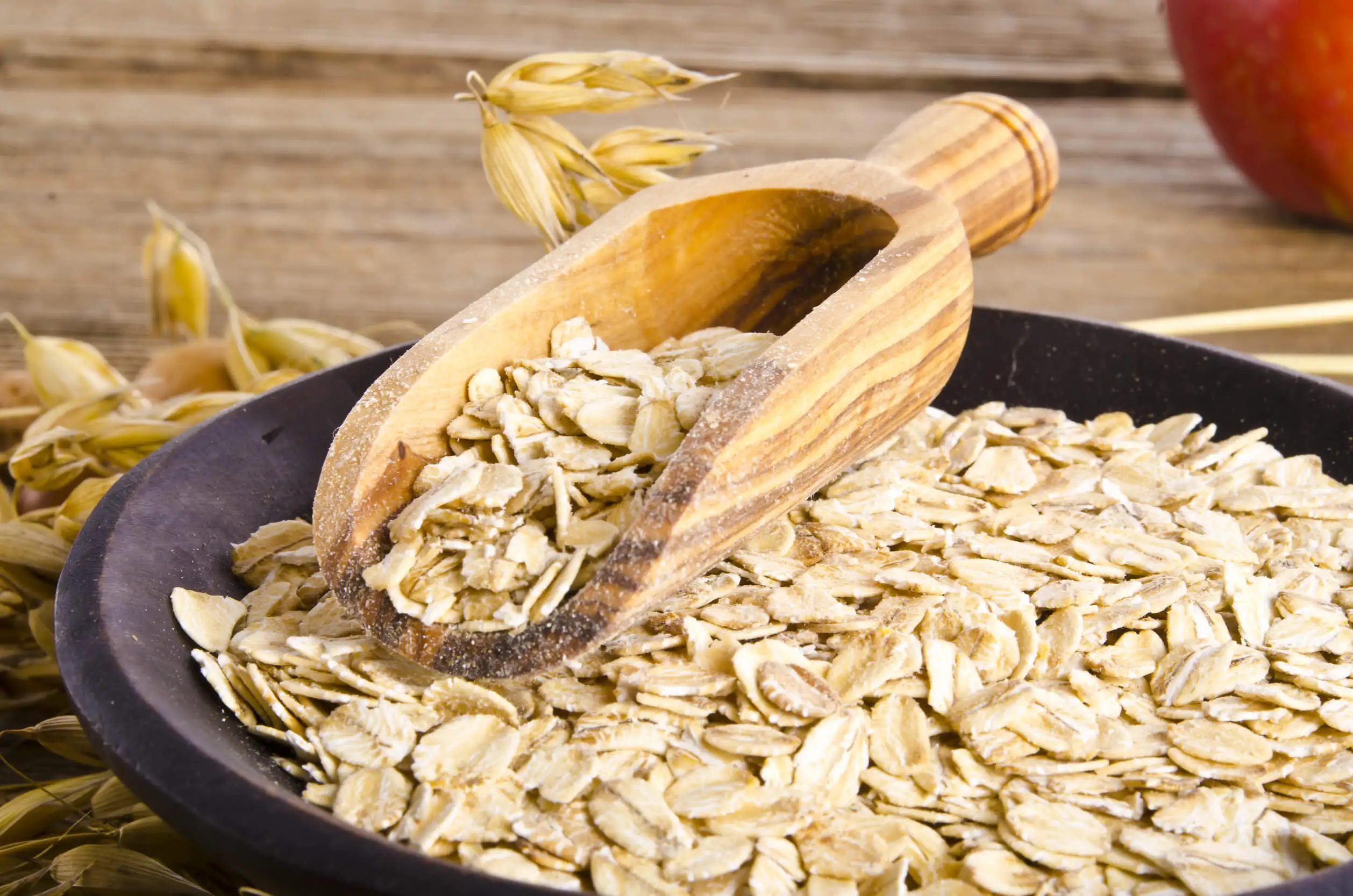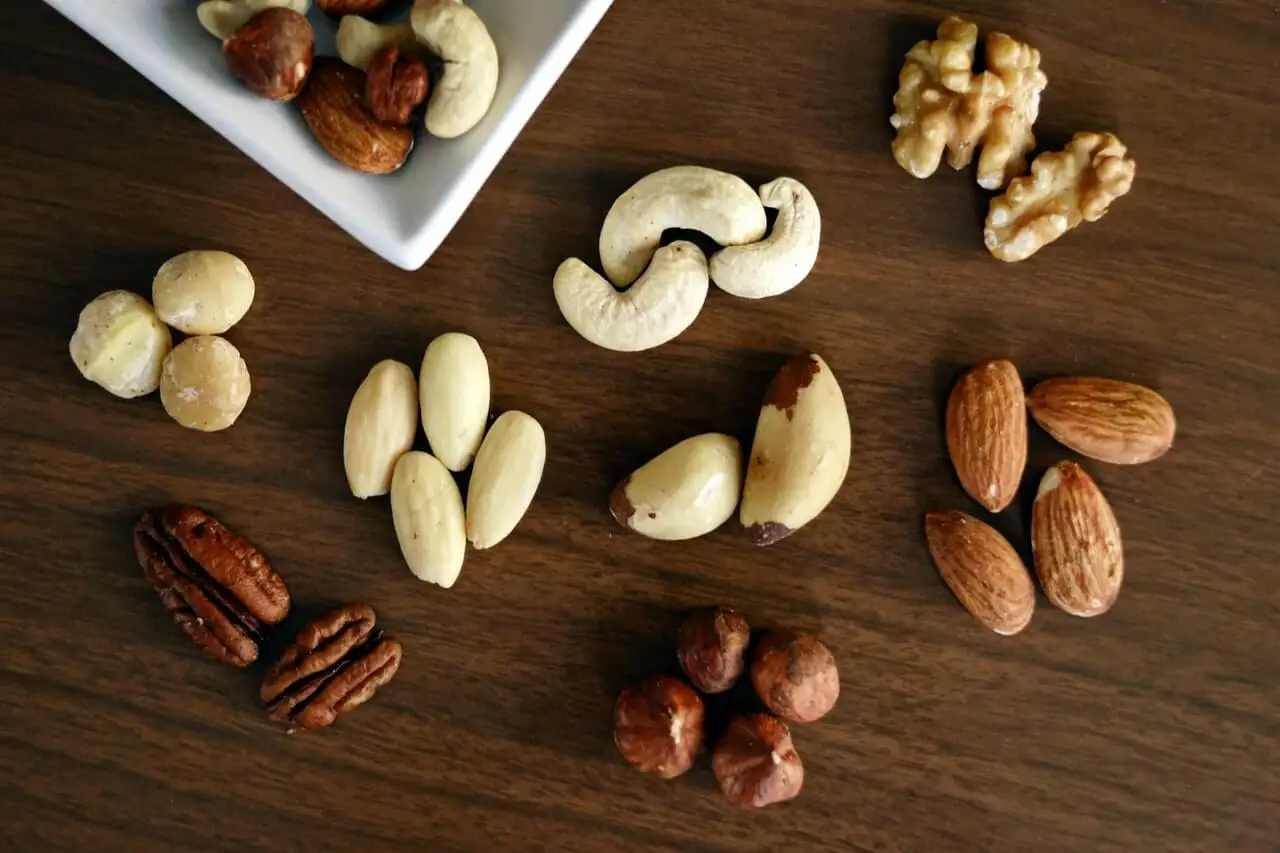10 Foods that Keep You Awake


Written and verified by the nutritionist Maria Patricia Pinero Corredor
There’s nothing more effective to rest your mind than sleeping. However, your routine often forces you to get up very early, even when you want to continue sleeping. The first thing you think of is to take a cup of coffee or two, but did you know there are certain foods that keep you awake throughout the day?
These products are healthy and energetic, and provide nutrients and components that improve concentration. On the other hand, according to the Mayo Clinic, caffeine intake should be limited, since high levels could affect health. This organization recommends no more than four cups of coffee or two energy drinks a day.
The foods that keep you awake provide the necessary components involved in wakefulness. Would you like to know what they are? We’ll tell you all about them.
Why is it important to stay active in our daily lives?
When we work or study for a long time without being able to take a nap, the brain gets tired and loses concentration. The day then becomes a challenge that can affect our performance.
On the other hand, it’s proven that people who activate their brain and their physical condition have a better quality of life, relate better, have more initiative, and are more independent. Mental health is as important as physical health.
Psychiatrist Rodríguez-Solano explains (article in Spanish) that there’s evidence that certain foods have components that increase concentration, combat stress, improve cognitive processes and keep you awake. Now we’ll show you 10 of them.
Read more: 7 Tips to Beat Mental Fatigue
Foods that keep you awake
So, take a look at your diet and include the following foods that keep you awake without having to take so much caffeine. In this way, you’ll be able to overcome the afternoon doldrums.
1. Oatmeal
Oatmeal is a cereal with recognized health benefits. The nutritionist Marilú Terrones explains that the main reason to consider it a functional food is because of its high soluble fiber values, such as beta-glucan.
The presence of this fiber determines the glycemic index (GI) of oats, that is to say, the speed with which it raises sugar levels in the blood. The Spanish Nutrition Foundation explains that everything will depend on how it’s consumed. For example, flaked oatmeal has a GI of 53, which is considered low. But in instant oatmeal, the value is 75.
Having a cup of flaked oatmeal for breakfast makes the body maintain adequate blood sugar levels throughout the day. This way, you get the energy you need to stay active and improve your performance.

2. Bananas
Bananas are a fruit rich in carbohydrates and energy. When ripe, starch is converted into rapidly absorbed simple sugars. Sucrose, glucose, and fructose predominate, so when you feel weak or bored and have a lot of work to do, you can eat a 160-gram (6 oz) serving of banana and get an extra 100 calories.
For that reason, bananas are the first choice in athletes at the start of a sporting event. In addition, a single banana can provide 23% of the potassium needed per day.
A group of pharmacologists published that bananas contain 41% of the daily requirement of vitamin B6. This helps to improve mood in people with depression.
A book on schizophrenia and depression comments that vitamin B6 is composed of 3 molecules: pyridoxine, pyridoxamine and pyridoxal. This vitamin participates in the metabolism of several neurotransmitters, such as serotonin, dopamine and norepinephrine.
3. Vegetables and fruits
It has been shown that vegetables and fruits contain more than 95% water. In particular, chicory, celery, onion, onion, eggplant, cucumber, melon, orange, strawberries, and peaches. This amount of water keeps you hydrated.
In addition, vegetables and fruits are rich in fiber, vitamin C, vitamin A, potassium and antioxidants. Never consume them at night, because they can hinder sleep.
4. Pineapples
Serotonin is a neurotransmitter that is produced from the amino acid tryptophan. Not all foods contain it. Serotonin acts as a natural antidepressant. In research on natural antidepressants, pineapple is highlighted as a stimulant of physical well-being and an ally against frustration.
Pineapple contains enough tryptophan to stimulate brain activity, generating vitality and calming anxiety. In addition, it’s loaded with energy from simple carbohydrates, such as sucrose, fructose, and glucose. For this reason, we include it among the foods that keep you awake.
You may be interested in: Description and Benefits of the Serotonin Diet
5. Protein-rich foods
A review in the journal Advances in Nutrition comments that protein-rich foods take a long time to digest and therefore increase satiety. This allows the person to stay active for longer.
On the other hand, eating a protein-rich meal gives the opportunity to sleep well throughout the night. In this way, the person wakes up with more pep and feels alert when waking up. This helps reduce the impact of afternoon tiredness.
The U.S. Department of Agriculture reports that the most protein-rich foods are eggs, meats, legumes, seeds, nuts, yogurt and popcorn. Some of them can be used as an afternoon or mid-morning snack.
6. Ripened or fermented foods
During the ripening process of some cheeses, such as blue cheese, Gouda, Brie and Parmesan, amino acids are released from proteins. One of them is tyrosine, which will later form the biogenic amine tyramine. This amine stimulates the release of norepinephrine, a brain activator that can keep you awake.
Other foods with tyramine include sour cream, yogurt, sauerkraut, cured, and fermented meat products. In mid-afternoon, eating a piece of ripened cheese will counteract sleepiness.
The amino acid tyrosine is present in citrus fruits, red meat, sausages, tea and coffee, and is used as a precursor of neurotransmitters that keep us awake and active. So, a good option is to combine a small piece of cheese with kiwi juice.
7. Green smoothies
The ingredients used to make green smoothies, such as spinach, contain enough iron for some of it to be absorbed into the blood. The body needs iron to produce hemoglobin and myoglobin, which transport oxygen to the different organs.
If you combine these smoothies with fruits rich in vitamin C, such as guava and grapefruit, iron absorption is favored. When the body has an optimal hemoglobin level, it functions better, as fatigue disappears.
8. Dark chocolate
Dark chocolate is considered the purest of all chocolates, as it has more than 75% cocoa. It’s a stimulant product, along with coffee, tea, mate, and guarana. It contains caffeine in smaller proportions, as well as other methylxanthines, such as theobromine and theophylline.
The mechanism of action is due to its ability to block a brain modulator called adenosine, which promotes sleep. Thus, it keeps us awake. Some research points to the fact that eating 20 grams (nearly 1 ounce) of dark chocolate could bring cardiovascular benefits. Remember that we’re talking about dark chocolate, not the variety that comes mixed with milk and sugar.
9. Nuts
Nuts are an important source of protein, and they produce satiety. They also contain fiber, B vitamins, minerals, polyunsaturated fats, and natural antioxidants. Their healthy fat content provides energy, but they should be eaten in moderation.
Research has suggested that a moderate daily consumption of any nuts in an adult’s diet of may improve cognitive function. Nuts also contain tryptophan.

10. Foods sources of healthy fats
Not all fats are harmful. Omega-3 fatty acids have benefits that include good brain development, better memory, and increased performance. Options include salmon, nuts, chia seeds and flax seeds.
Some studies show that frequent consumption of healthy fats improves symptoms of depression and anxiety. Other trials showed that adding more omega-3 fatty acids to the diet can improve memory and performance in children.
You can roast seeds and nuts to take along as a snack. This will concentrate the vitamins and their taste will be even more palatable, especially for children.
Nourish your brain to stay awake
Substances that are only stimulants activate the brain, but don’t nourish it. One way to nourish and stimulate it at the same time is to make small changes in our diet and check to see if we are eating a balanced, healthy diet.
We must include certain foods that contain nutrients and active components that help us to stay awake in our daily lives. Include oatmeal, nuts, bananas, and leafy greens. If you have any doubts, consult a nutritionist.
All cited sources were thoroughly reviewed by our team to ensure their quality, reliability, currency, and validity. The bibliography of this article was considered reliable and of academic or scientific accuracy.
- Rodríguez, A Solano M. Nutrición y Salud Mental: Revisión Bibliográfica. REVISTA DEL POSTGRADO DE PSIQUIATRÍA UNAH VOL.1, NO.3. ENE-JUN, 2008. Pp. 1-5.
- Cafeína: ¿Cuánto es demasiado? Mayo Clinic. Disponible en: https://www.mayoclinic.org/es-es/healthy-lifestyle/nutrition-and-healthy-eating/in-depth/caffeine/art-20045678
- Marilú Terrones. Resumen de ponencia. Propiedades Funcionales de la Avena. Disponible en: https://www.iidenut.org/pdf_revista_tec_libre/Renut%204/RENUT%202008%20TEC_4_172-173.pdf.
- Fundación Española de la Nutrición. Datos actuales sobre las propiedades nutricionales de la avena. Informe, FEN, 2017. Pp. 1-30. Disponible en: https://www.fen.org.es/storage/app/media/PUBLICACIONES%202017/INFORME%20AVENA_FEN_v2_2017__AvenaFEN2017_ok%201.pdf
- Fundación Española de la Nutrición. Plátano, Banana Musa acuminata/ Musa paradisiaca. 295-Disponible en: https://www.fen.org.es/MercadoAlimentosFEN/pdfs/platano.pdf.
- Kumar, K.P., Bhowmik, D., S.Duraivel, & Umadevi, M. (2012). Traditional and Medicinal Uses of Banana. Journal of Pharmacognosy and Phytochemistry, 1, 51-63. Disponible en: https://www.phytojournal.com/vol1Issue3/Issue_sept_2012/9.1.pdf.
- Khan A. Neurochemistry of schizophrenia and depression. 1998; Clovis. CA. Disponible en: https://ajp.psychiatryonline.org/doi/10.1176/appi.ajp.157.11.1901.
- Pérez C. Los alimentos y el sueño. Barcelona: Masson; 2003. Disponible en: https://www.casadellibro.com/libro-los-alimentos-y-el-sueno/9788445813058/913566
- Antidepresivos naturales. Alimentos ricos en triptófano para la falta de serotonina. Disponible en: https://web.ua.es/es/cae/documentos/p-psicoeducativo/alimentos-que-producen-serotonina.pdf
- Valentine Yanchou Njike, Teresa M Smith, Omree Shuval , Kerem Shuval , Ingrid Edshteyn , Vahid Kalantari , Amy L Yaroch . Snack Food, Satiety, and Weight. Adv Nutr, 2016 Sep 15;7(5):866-78.
- Glenda Lindseth, Paul Lindseth, Mark Thompson. Nutritional effects on sleep. West J Nurs Res, 2013 Apr;35(4):497-513.
- Departamento de Agricultura de los Estados Unidos. USDA. Protein Foods. Disponible en: https://www.myplate.gov/eat-healthy/protein-foods
- Merino-Andreu M, Álvarez-Ruiz de Larrinaga A, Madrid-Pérez JA, Martínez-Martínez MA, PuertasCuesta FJ, Asencio-Guerra AJ, et al. Sueño saludable: evidencias y guías de actuación. Documento oficial de la Sociedad Española de Sueño. Rev Neurol 2016; 63 (Supl 2): S1-27
- Hierro en la dieta. MedlinePlus. Disponible en: https://medlineplus.gov/spanish/ency/article/002422.html.
- Idoia Ibero-Baraibar, Itziar Abete, José Alfredo Martínez, Ana Rodríguez Mateos y María Ángeles Zulet. Guías para el consumo de chocolate negro. ¿Placer y salud cognitiva? Nutr Hosp. 2017; 34(4):759-760 ISSN 0212-1611.
- Barreda-Abasca R, Molina L, Haro-Valencia R, Alford CH, Verster JC. Actualización sobre los efectos de la cafeína y su perfil de seguridad en alimentos y bebidas. Rev Med Hosp Gen Mex 2012; 75: 60-7
- Leidy Yajaira Cuellar Amaya y Liana Carolina Ovalles Pabón. Chocolate: más que un dulce. Vol. 4 Núm. 7 (2017).
- NIH. 7 Things To Know About Omega-3 Fatty Acids. Disponible en: https://www.nccih.nih.gov/health/tips/things-to-know-about-omega-fatty-acids
- Fernando Gómez-Pinilla. Brain foods: the effects of nutrients on brain function. Nat Rev Neurosci. 2008, Jul;9(7):568-78.
- Saskia J M Osendarp 1 , Katrine I Baghurst, Janet Bryan, Eva Calvaresi, Donna Hughes, Mahdin Hussaini, Saskia J M Karyadi, B Jan-Willem van Klinken, Henk C M van der Knaap, Widjaja Lukito, Widjaja Mikarsa, Catherine Transler, Carlene Wilson. Am J Clin Nutr, 2007 Oct;86(4):1082-93. doi: 10.1093/ajcn/86.4.1082
- Romero, Rosario; Cueva, Henry; Barboza, Luis La gimnasia cerebral como estrategia para el desarrollo de la creatividad en los estudiantes Omnia, vol. 20, núm. 3, septiembre-diciembre, 2014, pp. 80-91
- Cafeína: ¿Cuánto es demasiado? Mayo Clinic. Disponible en: https://www.mayoclinic.org/es-es/healthy-lifestyle/nutrition-and-healthy-eating/in-depth/caffeine/art-20045678
- Marilú Terrones. Resumen de ponencia. Propiedades Funcionales de la Avena. Disponible en: https://www.iidenut.org/pdf_revista_tec_libre/Renut%204/RENUT%202008%20TEC_4_172-173.pdf.
- Fundación Española de la Nutrición. Datos actuales sobre las propiedades nutricionales de la avena. Informe, FEN, 2017. Pp. 1-30.Disponible en: https://www.fen.org.es/storage/app/media/PUBLICACIONES%202017/INFORME%20AVENA_FEN_v2_2017__AvenaFEN2017_ok%201.pdf
- Fundación Española de la Nutrición. Plátano, Banana Musa acuminata/ Musa paradisiaca. 295- Disponible en: https://www.fen.org.es/MercadoAlimentosFEN/pdfs/platano.pdf.
- Kumar, K.P., Bhowmik, D., S.Duraivel, & Umadevi, M. (2012). Traditional and Medicinal Uses of Banana. Journal of Pharmacognosy and Phytochemistry, 1, 51-63. Disponible en: https://www.phytojournal.com/vol1Issue3/Issue_sept_2012/9.1.pdf.
- Khan A. Neurochemistry of schizophrenia and depression. 1998; Clovis. CA. Disponible en: https://ajp.psychiatryonline.org/doi/10.1176/appi.ajp.157.11.1901.
- Pérez C. Los alimentos y el sueño. Barcelona: Masson; 2003. Disponible en: https://www.casadellibro.com/libro-los-alimentos-y-el-sueno/9788445813058/913566
This text is provided for informational purposes only and does not replace consultation with a professional. If in doubt, consult your specialist.








